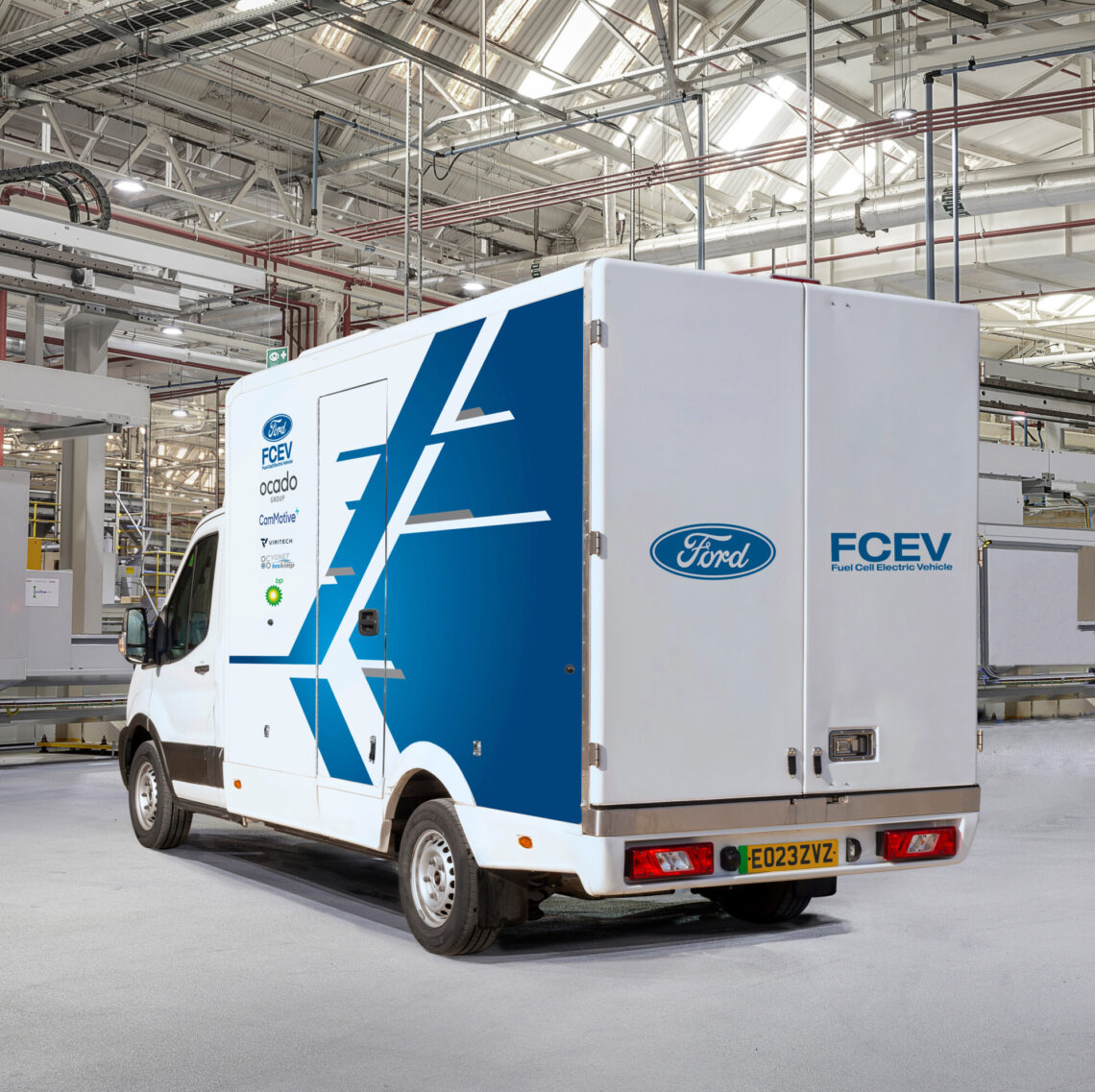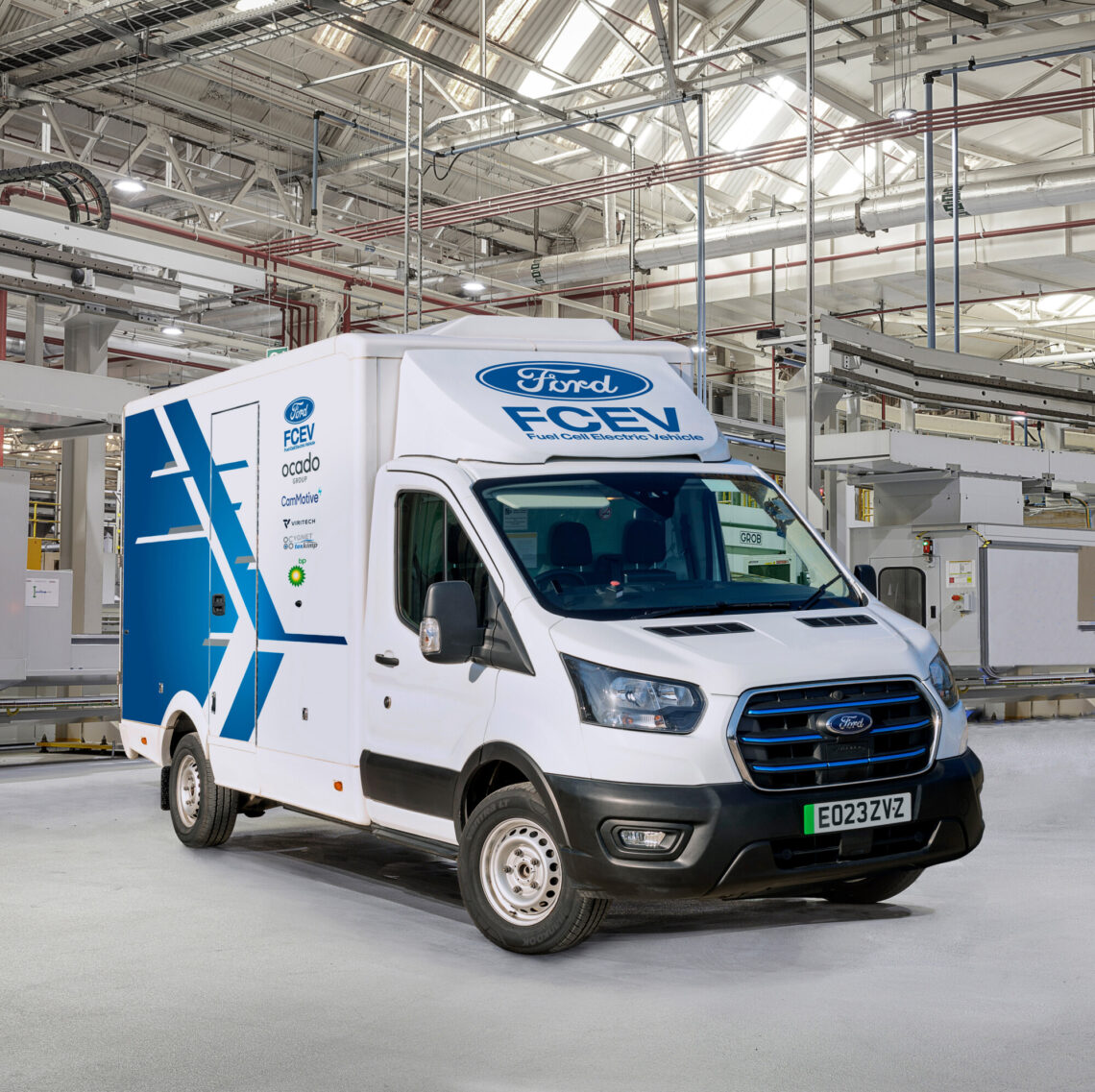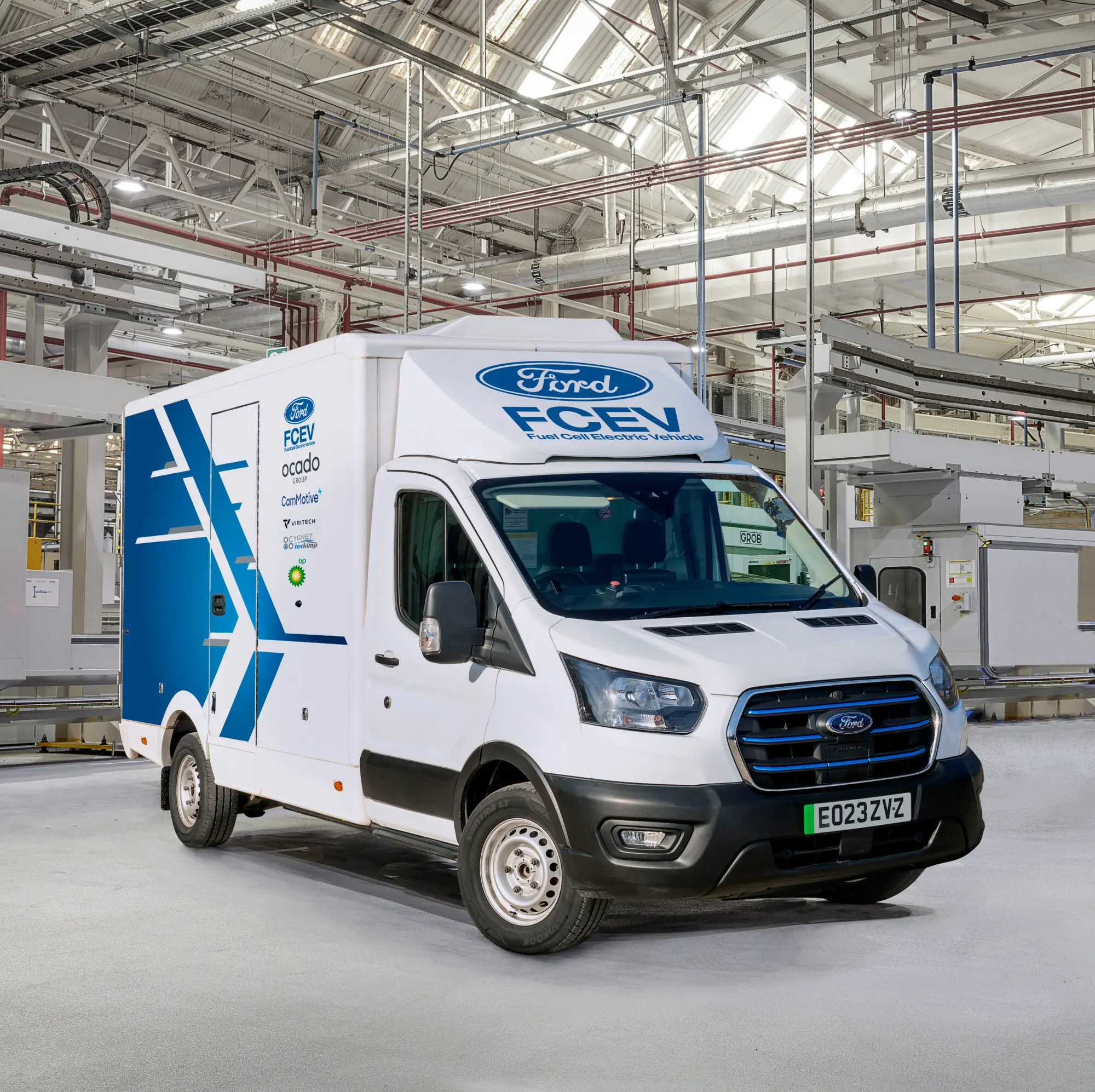Ford launches extensive test Ford E-Transit with hydrogen technology
Energy-intensive use scenarios.
Ford’s research will determine whether fuel cell technology can help provide a greater emissions-free driving range for E-Transit customers with energy-intensive use scenarios.
The research was partially funded by the Advanced Propulsion Center (APC). The Ford consortium of six automotive technology and fleet management leaders will also help determine the support infrastructure required for hydrogen refueling.
Conversion expertise
Ford Pro will use the pilot project to expand its conversion expertise. Ford expects the primary application of fuel cell technology to come into its own in the largest, heaviest commercial vehicle variants. Thus, these higher-energy vehicles can also be locally emission-free while delivering the driving range that customers demand.

Eight hydrogen-fuel cell Ford E-Transits
During the three-year project, a test fleet of eight hydrogen-fuel cell Ford E-Transits will run for six months. In doing so, Ford examines range, operating time and cost and compares them to a diesel-powered equivalent.
The Ford E-Transits prototype features a fuel cell stack, combined with significant hydrogen storage capacity, optimized for safety, capacity, cost and weight. An important part of the project will evaluate the efficient and viable recycling of discarded parts.


